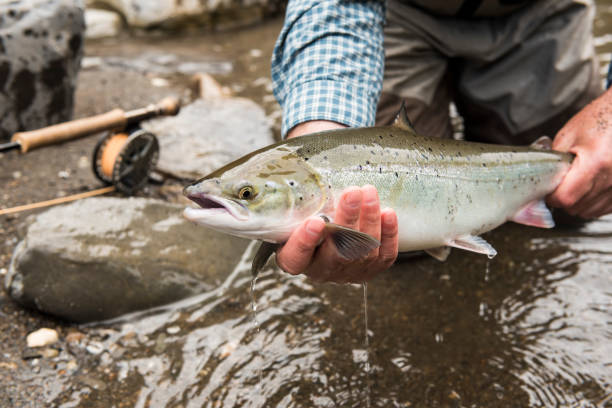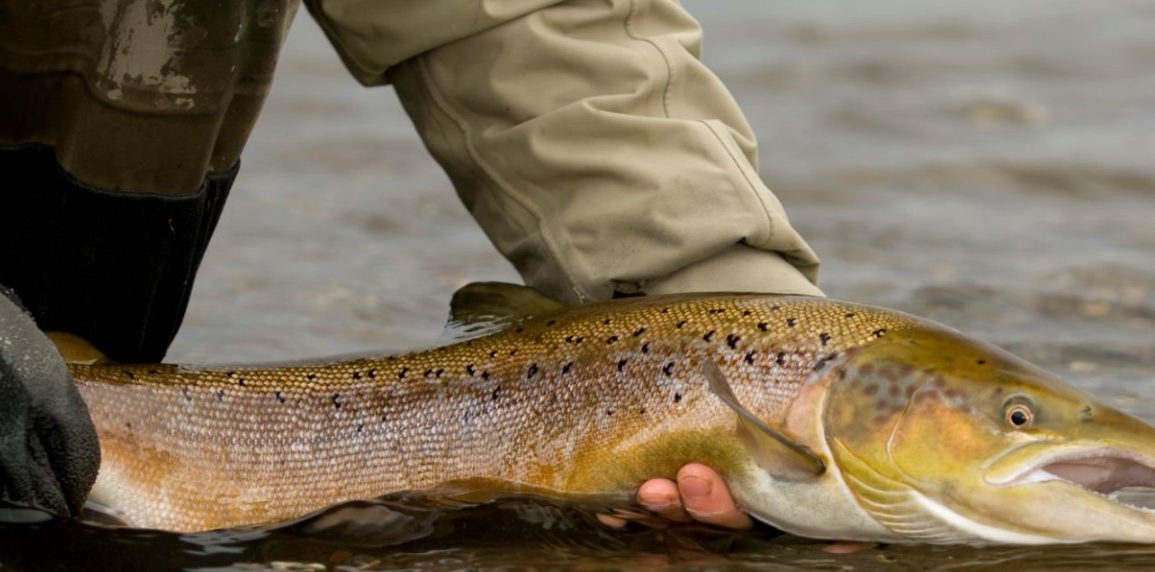In a troubling turn for the environment, new data reveals that Atlantic salmon populations in England and Wales have plummeted to their lowest levels on record.
According to a recent report from the Environment Agency and Cefas, last year’s figures were the bleakest since tracking began in 1997, indicating severe impacts from pollution and climate change.
Once thriving in the UK’s waterways, salmon have become increasingly rare, causing concern among anglers and conservationists alike.
This year, the estimated total declared salmon catch stands at just 5,399 fish, a significant drop from 6,952 in 2022. Until 2017, annual catches were consistently above 20,000, highlighting the severity of this decline.
Of the 64 rivers identified as “principal salmon rivers,” which historically supported significant salmon populations, only one is currently classified as not at risk.

The remaining rivers are struggling to maintain sustainable salmon populations, underscoring a larger ecological crisis.
As an indicator species, the health of the salmon is closely linked to the quality of their aquatic environment.
Unfortunately, rising pollution levels from sewage, agricultural runoff, and industrial discharges have compromised the health of these rivers.
In addition to pollution, physical barriers such as weirs impede the migration of salmon, while alterations to riverbeds have reduced the shallow spawning habitats these fish depend on.
Water abstraction by companies has further exacerbated the problem, leading to dangerously low river levels.
Stuart Singleton-White of the Angling Trust stresses the urgent need for government action, calling for stronger conservation efforts to ensure the survival of wild Atlantic salmon.
He emphasizes that without clean, free-flowing rivers, these fish may struggle to complete their lifecycle, marking a critical moment for biodiversity conservation in the UK.

